Happy Wednesday! It’s the YIMBY story you’ve probably never heard of: As one particularly mischievous pileated woodpecker descends on Rockport, Massachusetts, residents of the town have taken to using trash bags and towels to shield their cars from its destructive tendencies. But they’re not looking to expel the avian invader anytime soon.
“Everybody’s having a good laugh about it,” one local told the Associated Press. “Nobody wants harm to the bird. He’s always welcome back.”
Quick Hits: Today’s Top Stories
- President Donald Trump on Tuesday signed an executive order seeking to ease the effects of forthcoming auto tariffs on U.S. automakers. The order, which came four days before the White House’s 25 percent levies on imported cars and car parts were set to take effect, will exempt domestic automakers from tariff “stacking,” meaning that 25 percent auto tariffs cannot be coupled with additional tariffs on materials, such as steel and aluminum. Trump also extended tariff-rate discounts to manufacturers that finish assembling their vehicles in the United States. Under the new scheme, the government will reimburse those companies 3.75 percent of the value of each car manufactured before May 1, 2026, or 2.5 percent for vehicles completed after that date but before April 30, 2027. Those reimbursements will fully expire after two years.
- The Corporation for Public Broadcasting (CPB)—a nonprofit created by Congress in 1967 that provides federal funding to PBS, NPR, and local television and radio stations nationwide—sued the Trump administration Tuesday for terminating three of its five board of directors the day prior. On Monday, the White House informed Vice Chair Laura Ross and members Thomas Rothman and Diane Kaplan that their positions were “terminated effective immediately,” a move the CPB argued President Trump has no authority to make. Because Congress formed the nonprofit as a private enterprise rather than a government agency, the CPB’s lawsuit asserted, its board members are not government employees and cannot be removed by the president. Responding to the lawsuit, White House assistant press secretary Taylor Rogers said, “[The] Constitution gives President Trump the power to remove personnel who exercise his executive authority.”
- President Trump called Amazon founder Jeff Bezos on Tuesday, following news that the e-commerce giant planned to display tariff-associated costs for each product for sale on its website—reporting that Amazon later said was not fully accurate. “Jeff Bezos was very nice,” Trump said on Tuesday, adding, “he solved the problem very quickly.” On Tuesday morning, Punchbowl News reported that the shopping site would begin showing how much of an item’s cost comes from tariffs, but an Amazon spokesman later said the change was being considered only for the company’s low-cost shopping service, Amazon Haul, and was ultimately “never approved and is not going to happen.”
- President Trump on Tuesday moved to dismiss several board members of the U.S. Holocaust Memorial Museum who had been appointed by former President Joe Biden, including former Vice President Kamala Harris’ husband, Doug Emhoff. The other dismissals targeted individuals who previously held senior roles in the Biden administration, including Biden’s former chief of staff, Ron Klain, as well as advisers Susan Rice and Tom Perez. Anthony Bernal, a former senior adviser to first lady Jill Biden, was also removed. All of the former government officials were appointed to the council in January, and appointees typically serve five-year terms.
- Harvard University on Tuesday released two separate reports that it commissioned to probe antisemitism and anti-Muslim bias on campus. Antisemitic bias, the report found, had severely escalated following Hamas’ October 7, 2023, attack on Israel, though it noted that anti-Jewish bigotry was an issue before the war’s start. Meanwhile, the report on Islamophobia found that many Muslim, Arab, and Palestinian students, faculty, and staff had felt “abandoned and silenced” while on campus. The reports were published one day after Harvard—which is currently suing the Trump administration for revoking more than $2 billion in federal grants amid its investigation into antisemitism at the university—renamed its Office for Equity, Diversity, Inclusion and Belonging to the Community and Campus Life office.
- Defense Secretary Pete Hegseth on Tuesday announced plans to end the Pentagon’s Women, Peace and Security program, describing the body that was signed into law by President Trump in 2017 as a “Biden initiative.” In a post on X, Hegseth said he planned to eliminate the program to “the minimum … required by statute,” adding that he would fight to see it completely shuttered for the department’s next budget. The initiative, which was championed by Ivanka Trump, seeks to further women’s participation in security teams and peacebuilding efforts at the Pentagon. Shortly after his announcement, Hegseth said the Biden administration “distorted & weaponized the straight-forward & security-focused program.”
Canada: No More Mr. Nice Country
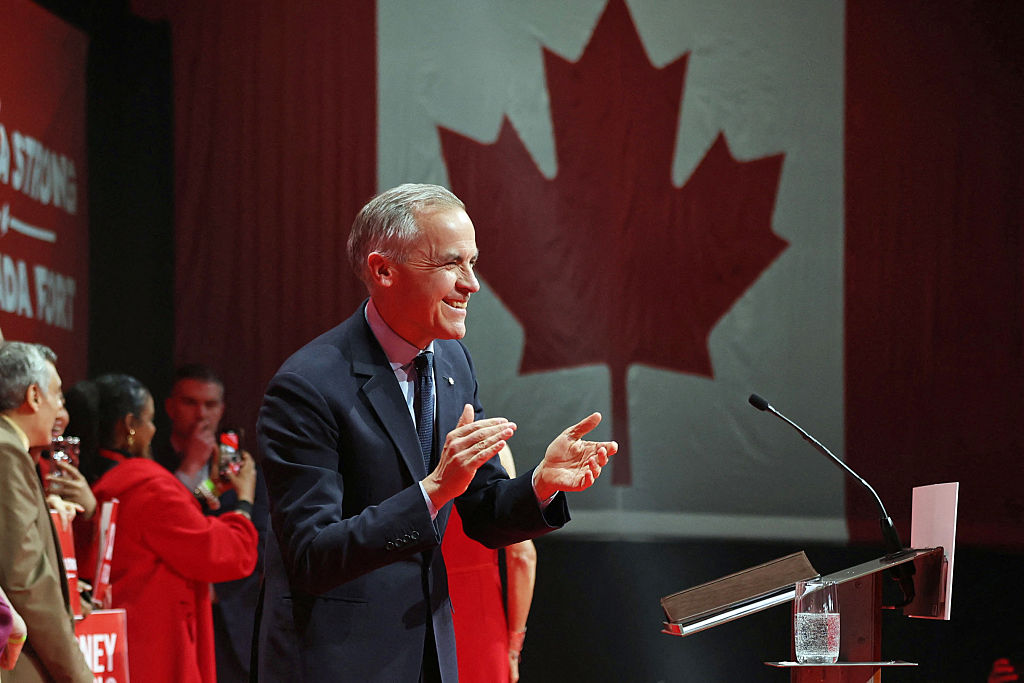
When then-Canadian Prime Minister Justin Trudeau announced his resignation in January, his Liberal Party trailed the Conservatives, led by Pierre Poilievre, by 29 points. Canada was poised to swing right, joining a worldwide shift away from left-leaning incumbents, and the Liberals—after nine consecutive years in power—were preparing for an electoral future without their longtime leader.
“I intend to resign as party leader, as prime minister, after the party selects its next leader through a robust, nationwide, competitive process. Last night, I asked the president of the Liberal Party to begin that process,” Trudeau said in a speech. “This country deserves a real choice in the next election and it has become clear to me that if I’m having to fight internal battles, I cannot be the best option in that election.”
But nearly four months later, the Liberals remain in power—barely. Led by a novice politician who replaced Trudeau as prime minister in February, the mild-mannered former central banker Mark Carney, the Liberals eked out a narrow win in Canada’s Monday election. As of Tuesday night, the party is projected to win 169 seats to the Conservatives’ 144, three short of a majority but enough to govern from the minority.
It’s one of the most stunning electoral comebacks in recent world politics. But Carney didn’t manage it entirely on his own: As President Donald Trump threatened to annex America’s northern neighbor—and later initiated a trade war with the country—the Liberals rode a wave of Canadian defiance, promising to fight back against the increasingly antagonistic posturing of its North American ally and No. 1 trade partner. Meanwhile, Poilievre failed to hold onto his big lead, even losing his own seat of Carleton.
“America wants our land, our resources, our water, our country,” Carney said in his victory speech to supporters on Monday night. “President Trump is trying to break us so America can own us. That will never… happen.” It was a rousing (for Canada) note for Carney to strike, one that he’s never had to deploy in his previous career.
The rousing political speech belied Carney’s technocratic past. The prime minister served as the governor of the Bank of Canada during the 2008 financial crisis and as the governor of the Bank of England during Brexit and the early stages of the COVID pandemic. But he’s never held elected office before. His Monday victory in Nepean, a suburban area of Ottawa, was the first general election Carney had ever won; he clinched the Liberal Party leadership race in February without holding a seat in Parliament.
Carney’s soft-spoken campaign speeches were notably less polished than those of his opponent, Poilievre, an experienced conservative MP with a penchant for pithy phrases like, “Ax the tax!” and, “Fight the crime!” In the lead-up to Monday, Poilievre sought to frame the election as a referendum on the Liberals’ 10 years in power, capitalizing on Canada’s cost-of-living crisis and growing frustration toward the country’s high levels of immigration.
Toronto and Vancouver are some of the most expensive places in the world to purchase a home, and rents are also increasing at record rates. The Liberal Party struggled to spur housing construction over the past decade, as the country confronted a real estate market stunted by red tape. Meanwhile, Canada’s population grew from 35 million to 40 million in 10 years amid increased immigration targets established by Trudeau, all while housing and public services (including Canada’s socialized healthcare system) struggled to keep up.
It was fertile ground for a firebrand like Poilievre, who positioned himself as a populist campaigning against Canada’s urban political establishment. Drawing much of his support from western provinces like Alberta and Saskatchewan, Poilievre promised to lower taxes, cut regulations on Canada’s oil industry, and promote housebuilding. Breaking with the generally polite tenor of Canadian electoral politics, he described Trudeau’s ideology as “basically authoritarian socialism” and argued that the country needed to return to a politics of “Canada first.”
Poilievre’s positioning as the “change candidate” struck a chord with younger voters. In a reversal of longstanding voting trends, young Canadians were likelier to vote Conservative: In an April 24 poll, 49.3 percent of voters between the ages of 18 and 34 favored Poilievre and the Conservatives, while older voters leaned toward Carney and the Liberals. That support translated into a sense of youthful energy around Poilievre’s campaign, whether at overflowing rallies or in hockey stadiums, where Toronto Maple Leafs fans chanted, “We want Poilievre!”
But only one slogan mattered by the end of the election, and it wasn’t Poilievre’s. It was “Canada Strong,” Carney’s response to the tariffs imposed on Canadian exporters by Trump, along with the American president’s continued threats to make his country the “51st state.” As soon as Trump announced a package of duties targeting Canadian industries like steel, automobile parts, and energy, Canadians rallied around the flag, boycotting U.S. goods and halting visits to the U.S. for business or tourism.
Hockey, perhaps Canada’s most beloved cultural tradition, also played a major role. Canadians booed the “Star Spangled Banner” during February’s NHL Four Nations Face Off final between Canada and the U.S., with Trudeau telling Trump that “you can’t take our country—and you can’t take our game.” Carney also paid homage to the national sport, shooting an ad with fellow Canadian Mike Myers, taglined “elbows up, Canada,” borrowing Hall of Fame defenseman Gordie Howe’s catchphrase for protecting himself from an aggressive opponent.
“He really positioned himself as a specific type of leader for a specific type of situation,” Darell Bricker, the CEO of Ipsos Public Affairs, told TMD. “Break the glass, it’s Mark Carney time.” Whether it was announcing public support for auto workers impacted by tariffs or declaring that, “We will never, in any shape or form, be part of the U.S.,” Carney was able to cast himself as a unifying figure for a country in crisis.
Carney’s experience as a banker also boosted his appeal with voters seeking competence above all else. “You’re supposed to campaign in poetry and govern in prose,” he told reporters this weekend. “Some members of the media will know I sort of campaign in prose. … I’m going to govern in econometrics.”
His campaign also successfully drew comparisons between Poilievre and Trump, repeatedly accusing the Conservative leader of seeking to imitate the U.S. president. “Someone who worships [Trump] like Pierre Poilievre will never stand up to him,” Carney said at a March rally in Montreal. “And someone who believes that Canada is broken will never put Canada first.”
Poilievre gamely tried to parry the accusations, even as Trump took evident delight in praising the Conservative leader. “Stay out of our election,” he told Trump on X, after the president wrote a social media post urging Canadians to vote for him. On the campaign trail, Poilievre also argued that he would do a better job than Carney of making deals with Trump.
But much of the Canadian electorate was more comfortable throwing elbows at the U.S. than at fellow Canadians, Bricker told TMD. Older voters, especially, were more comfortable with Carney’s more unifying and moderate message than Poilievre’s more ideologically charged approach.
Still, there really was widespread discontent with the Liberal record. Even though they lost, the Conservatives’ final vote share was 41.3 percent—their highest in years and just behind the Liberals’ final tally of 43.7 percent. The campaign’s gains with younger generations also point toward a party that isn’t receding into the background anytime soon.“We gave voices to countless people across the country who’ve been left out and left behind for far too long,” said Poilievre Monday night.
The “Trump effect” would almost certainly not have been as helpful to the historically unpopular Trudeau. “I think the part that my American friends miss is that they think that this is all about Donald Trump,” said Bricker. “If Donald Trump were doing the same thing that he was doing now and Justin Trudeau was the prime minister, it wouldn’t have the same effect.”
Carney’s political inexperience helped him to shed Trudeau’s baggage. In March, one of his first actions as prime minister was to cancel the unpopular carbon tax introduced by Trudeau, a policy that Poilievre used to attack the Liberal government as out of touch with the average Canadian’s economic situation. It would have been a major flip-flop for any other Liberal who had voted for its passage, but Carney had no track record to deny or defend.
But Carney must now lead Canada through a period of deep challenges. A survey of economists by Bloomberg News found that most expected Canadian growth to slow substantially in 2025, with a high risk of recession. Even Carney has been forced to acknowledge that Canada is disadvantaged in a trade fight with its much larger neighbor, backing down from the threat of “dollar for dollar” tariffs in favor of attempts to target politically sensitive industries. Meanwhile, social tensions over the pace of immigration and rising crime persist. As a minority government, the Liberals will also likely need to cut deals with other parties to survive no-confidence votes.
But Carney was clear that while change in Canada was needed, he also expected a permanent change in its relationship with the United States. “We are over the shock of the American betrayal, but we should never forget the lessons,” he said Monday night. “We have to look out for ourselves, and above all, we have to take care of each other.”
Today’s Must-Read
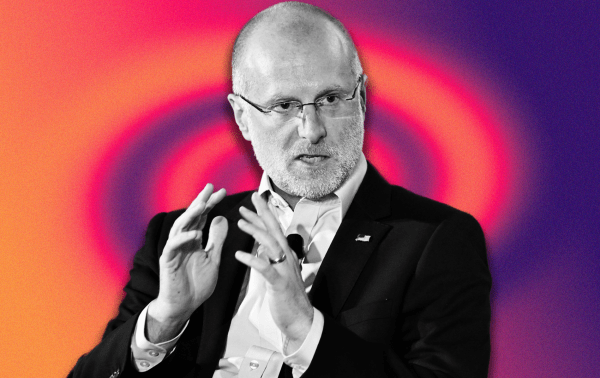
Brendan Carr’s Bizarro World FCC
Toeing the Company Line
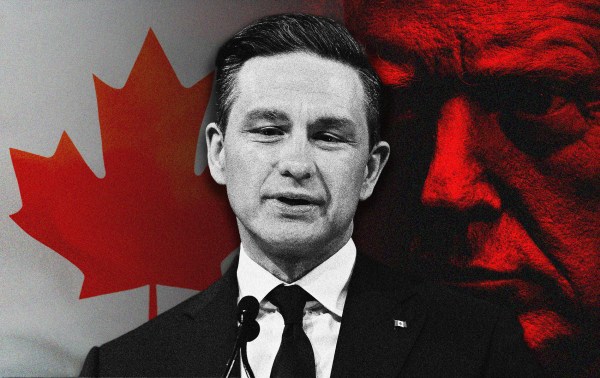

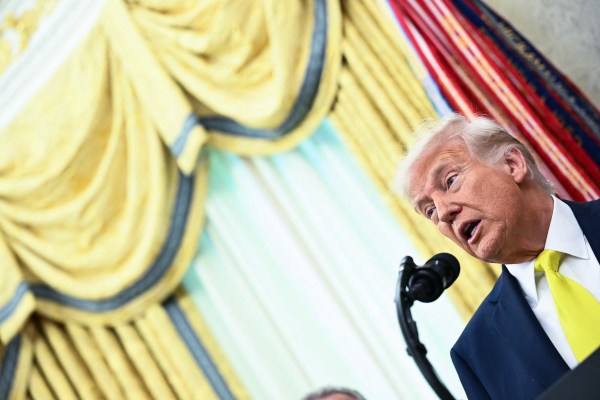
There’s Nothing Conservative About Donald Trump’s Trade Philosophy

What We Got Wrong in April

Video: Dispatch Live Featuring SCOTUSblog

Worth Your Time
- On the 50th anniversary of the fall of Saigon, Michelle Giuda reflected on her own family’s story of tragedy and triumph for the Wall Street Journal. “Black April was more than a historical marker; it’s the root of my family’s story. My Vietnamese mother fled South Vietnam seven days before the communists took over. My maternal grandmother escaped on one of the last C-130 aircrafts six days later. My father was a member of the Navy Seabees stationed in Da Nang before the Tet Offensive,” she wrote. “The fall of Saigon was a tragedy—lives lost, a country fractured, families like mine clinging to helicopters or braving the seas. Their exodus reminds us of the lengths people will go to escape the scourge of communism and build something from nothing. … Young Americans today have known peace for decades. But from Saigon to Kabul, we’ve seen how freedom’s promise can vanish in an instant. With distance comes danger: the fading of memory. On this anniversary, we must remember that the gifts of the U.S. are fragile, precious and worth defending.”
Presented Without Comment
ABC News: Trump Says ‘I Could’ Get Abrego Garcia Back From El Salvador
In an exclusive interview with ABC News to mark his 100th day in office, President Donald Trump on Tuesday said he “could” secure the return of Kilmar Abrego Garcia, the Maryland man his administration said in court was mistakenly deported to El Salvador.
…
The president then said that Abrego Garcia is a member of the criminal MS-13 gang and “is not an innocent, wonderful gentleman from Maryland.” Abrego Garcia’s lawyers have maintained he’s not MS-13 and has not been charged with or convicted of a crime.
Also Presented Without Comment
NewsNation: U.S. Space Force Working To Develop Space ‘Aircraft Carrier’
In the Zeitgeist
Nothing riles up sports fans quite like music. The Virginia Tech Hokies have their “Enter Sandman” entrance, the Chicago Bulls arrive to their theme song “Sirius,” and the Los Angeles Kings kick off to the tunes of the iconic Koreatown Senior and Community Center harmonica group.
On game days when the harmonica musical group has brought their talents to the Kings’ ice rink, the team has gone undefeated.
Let Us Know
Do you expect Donald Trump’s policies to have electoral consequences elsewhere in the world?



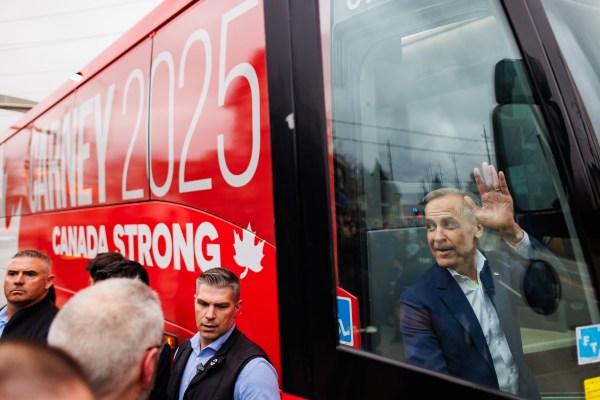
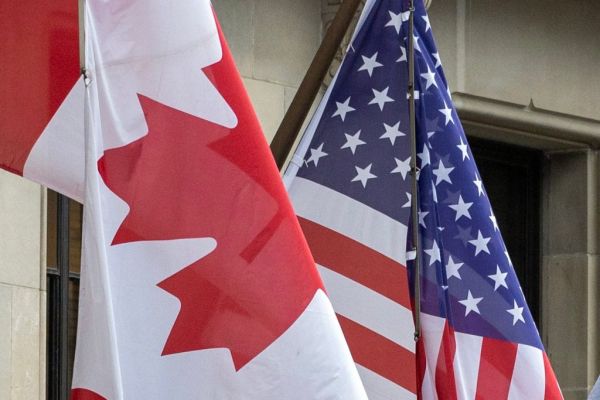

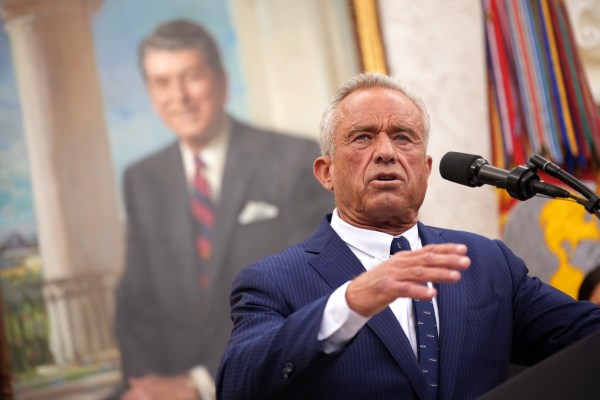

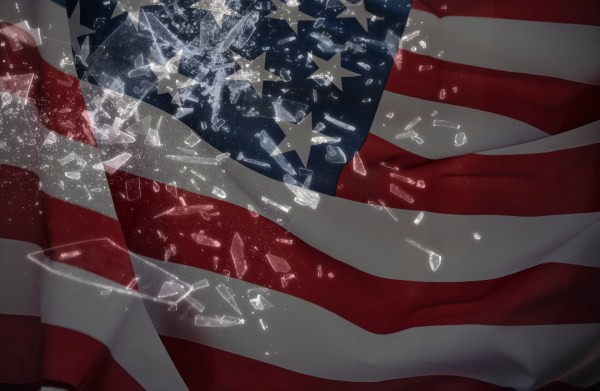

Please note that we at The Dispatch hold ourselves, our work, and our commenters to a higher standard than other places on the internet. We welcome comments that foster genuine debate or discussion—including comments critical of us or our work—but responses that include ad hominem attacks on fellow Dispatch members or are intended to stoke fear and anger may be moderated.
With your membership, you only have the ability to comment on The Morning Dispatch articles. Consider upgrading to join the conversation everywhere.